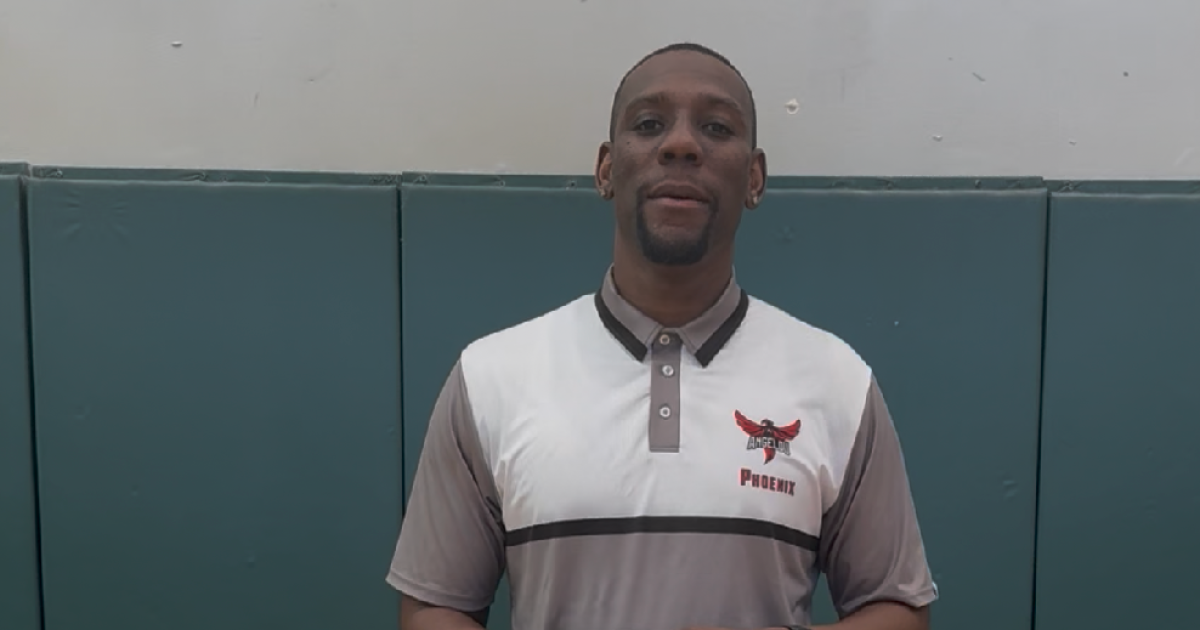Coach Leon Jacob has helped create success for Angelou basketball
When Angelou High defeated Manual Arts 77-33 in an Exposition League basketball game earlier this week, second-year coach Leon Jacob had mixed emotions. He graduated from Manual Arts in 2003, went on to win a state championship at Compton College and played at Texas A&M-International
“I apologized to the coaches,” he said. “We could have had 100 points. That’s not me. I have respect for my alma mater.”
Jacob, 41, played professional basketball for years in such places as Belize, Mexico, Germany and Bolivia. He played for the Belize national team. He became a JV coach at Hawkins for one season before taking over at Angelou last season. Angelou made it to the City Division V final before losing in overtime.
Angelou is 10-3 this season and 6-1 in the Exposition League. Daviandre Davis, a 5-foot-7 junior guard, is averaging 23 points a game. Sophomore Rayshawn Martin and senior Damon Ly average 13.8 and 12.0 points, respectively.
“I’m having fun coaching,” said the 6-foot-3 Jacob said. “They’re really high-character kids.”
Jacob said he decided to try coaching after learning from lots of mentors. He said he’s never gotten a technical called on him.
“I’m a cool coach,” he said.
This is a daily look at the positive happenings in high school sports. To submit any news, please email eric.sondheimer@latimes.com.
